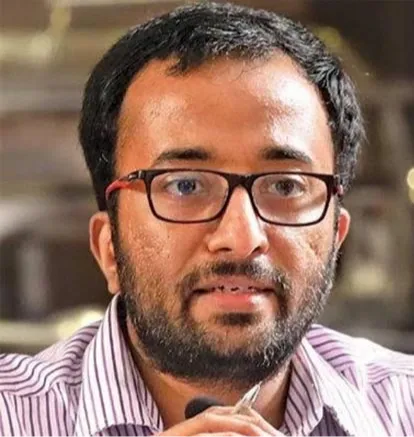The Health chapter in the BJP’s election manifesto is titled “
Health for All”, and the Congress manifesto’s health section starts with the line: “
Healthcare is a public good”. BJP has promised effective implementation of an even more beefed up version of its already ambitious flagship initiative; the Ayushman Bharat. At the same time, Congress has promised that it will spend 3% of the GDP to enact a Right to Healthcare Act. Never before in India was the gap between what the activists ask and what the manifestos of the main parties promise so narrow. What we have here is a historic opportunity to have a national conversation about ensuring decent health protection to every Indian.
There is continuity in policy too- at least in health, the NDA performance was a UPA-III act. What the BJP has promised in their manifesto can very well be called UPA IV. However, what Congress promised is a clear break from the past in its tone, ambition and scale, to the point of being unrealistic within a five year timeframe.
The NDA government has been able to consolidate the UPA era gains, build on, and broad-base them, like in the case of Ayushman Bharat Pradhan Mantri Jan Arogya Yojana (AB-PMJAY) and Pradhan Mantri Bhartiya Janaushadhi Pariyojana (PMBJP). One hopes that we are slowly moving towards an era of a 'common minimum programme' across all major political parties in health policy, which will avoid discontinuity and delays.
Health Policy Discussions and the Risk of Fake News
While the quality of the
overall health information system in India leaves much to be desired, we live in times of unprecedented access to health information which can help track schemes, evaluate impact, and take governments to task. However, the general quality of our policy discussions and media conversations remain low, as they are uninformed by relevant numbers, evidence, and often, an elementary fact-check. Only this week we read that a bunch of IIT graduates were able to take the national media for a ride, and managed a wide array of media platforms to
publish plugs for their commercial product.
When the quality of mainstream health reporting remains inadequate, there is a
risk of fake news ruling the roost and derailing otherwise meaningful policy conversations. Three recent examples are cited below to make the point that uninformed reporting can be misleading, and often harmful. Numbers are an ally, and health policy conversations need to be informed by evidence.
Three Case Studies
The ongoing H1N1 outbreak in Rajasthan saw some
sensationalist coverage by national and regional media and parallels were regularly made to the 2015 outbreak, the worst in history. However, an examination of data shows that by
early March in 2015, Rajasthan had recorded more than 6000 H1N1 cases and over 350 deaths. In 2019, the corresponding numbers were more than
4500 cases and over 150 deaths. The proportion of deaths to total positive cases has come down considerably in Rajasthan, compared to even more recent years of
2016, 2017, and 2018, showing government’s success in dealing with the disease in a year with a high case load.
Similarly, Uttar Pradesh government’s
immensely successful campaign against Acute Encephalitis Syndrome (AES) and Japanese Encephalitis (JE) which has
brought down deaths by encephalitis considerably across the states has not received adequate coverage, even as encephalitis deaths are being reported regularly in national las well as regional media. In 2018, Uttar Pradesh saw only 255 deaths by encephalitis- much less than in
2017 (747), 2016 (694) or 2015 (521). Last year was perhaps the first time in a decade when encephalitis deaths fell below the 500 mark in Uttar Pradesh.
There were recent reports about a
large number of child deaths in a hospital in Bhuj, Gujarat. Headlines across national media suggested that over 1,000 children died in the hospital in last 5 years, alleging foul play. The fact that big hospitals dealing with complex cases coming from a large rural catchment area often have similar number of deaths was ignored by the media. Also ignored was a
government inquiry in 2018, which had examined allegations by the opposition party in Gujarat of “a gory repeat of Gorakhpur” and had given a clean chit to the same hospital.
India’s Path to Evidence-Based Universal Health Care
If India were - under BJP or Congress or any other party- to reach the dream of Health for All, there needs to be a national conversation informed by evidence. The parliament elections, where both big national parties already support substantial efforts towards universal health care offers India a historic opportunity to open up such a conversation.
However, the instances discussed above warn us about the possibility of partisan concerns and fake news dominating pre-poll discussions around health policy. Given the historically polarised health policy debates in the country, we need to guard ourselves against alarmism and sensationalism in mass media.
Health being a State subject, the focus of policy debates should be at the state level in order to bring about transformative action to achieve desirable outcomes. The
Health Index initiative led by NITI Aayog and the Ministry of Health and Family Welfare, providing disaggregated scores and rankings of Indian states across health sub-domains, is an impressive step towards transparency and accountability in India’s health sector. It is hoped
that immensely useful databases like these are utilised well during the election season.
This commentary originally appeared in News18.
The views expressed above belong to the author(s). ORF research and analyses now available on Telegram! Click here to access our curated content — blogs, longforms and interviews.




 PREV
PREV


